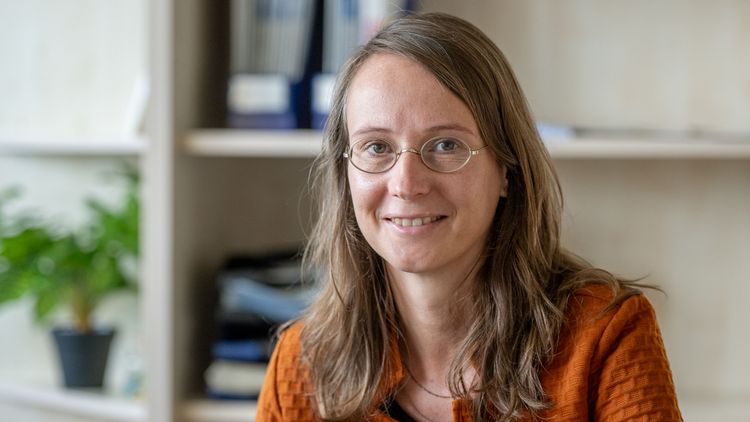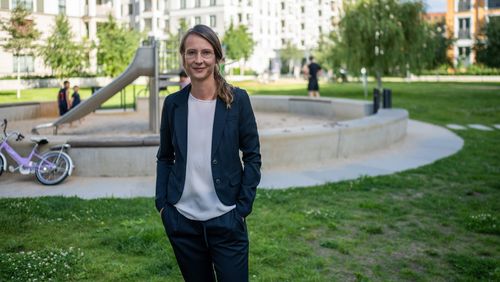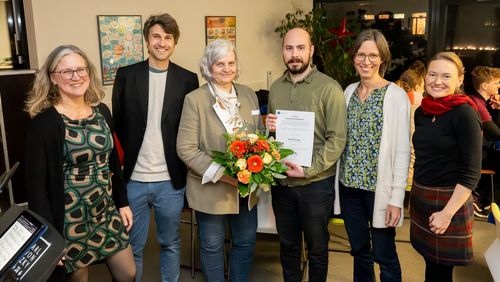Despite many family policy reforms, mothers still take on more unpaid family work than fathers. In this interview, sociology professor Gundula Zoch explains why this is the case and why flexible working models are important to ensure that the labour market is no longer restricted to traditional gender roles.
One of the aims of family policy reforms in Germany in recent years has been to promote maternal employment and paternal care. Together with your colleague Dr Stefanie Heyne, you have examined whether these reforms have actually changed the gender-typical division of household tasks. Your findings suggest that family policy is increasingly promoting a fairer division of unpaid family labour. However, the division of this work between men and women has hardly changed over time. Were you surprised by this finding?
Yes and no. Germany has invested a lot – including a huge expansion of the early childhood care infrastructure and several parental benefit reforms aimed specifically at encouraging mothers to work and fathers to get involved in the early months of a child’s life. Studies show: women are now returning to work much earlier and working more hours, and more than a quarter of fathers are taking parental leave. These huge changes in a short period of time were the starting point for our project. However, we know that fathers often only take a few months of paternity leave – and often not even alone. Similarly, the number of crèche and daycare places currently available is still not sufficient to meet the childcare needs of all parents. Against this background, it is not surprising that the impact of family policy reforms on a fairer distribution of unpaid family work has been relatively small. In essence, mothers are now investing slightly less time in the household – but fathers have hardly increased their share noticeably.
Why do you think it is so difficult, especially in Germany, to shape family policy in such a way that it really leads to gender equality? Or is it not down to politics?
One of the biggest challenges in Germany (and other countries) is the deeply rooted cultural concept of gender roles. Traditional role models, which see women mainly in domestic and caring roles, are still very much present and influence the effectiveness of family policies – even after reforms. In addition, structural features of the labour market, such as the importance of full-time work as the norm for career success, can make it extremely difficult or even impossible for couples to decide to share family work in a more gender-equitable way. These deeply rooted social and cultural norms and structures in our society persist. This is another reason why, more than 30 years after the end of the GDR, we still see differences in the gendered division of labour between East and West Germany in the contexts we have studied: in contrast to East Germany, mothers in West Germany take on more housework on average after the birth of their child, not only in total but also in relation to their partner.
What do you think would be an effective measure that could be implemented quickly and would resonate with as many people as possible?
As I said, I’m sceptical about calling for immediate, far-reaching change. At the moment, many parents are unable to take advantage of the amount of childcare that is actually contracted for their children – for example, because of a lack of staff. We need reliable structures. In the future, this will not only apply to early childhood care, but also to the rapidly growing number of elderly people in need of care. In my view, these tasks can only be tackled with flexible working models and greater support for part-time work for both women and men. This could help to share care work between the generations more equitably, without one partner’s career suffering in the long term. A cultural change towards acceptance of these models is absolutely necessary – also among employers. The shortage of skilled labour should certainly indirectly help to better meet the wishes and needs of employees in the future.
What is your wish in this regard, for example on International Women’s Day?
My wish is that in this – often very heated – debate we discuss the individual and social importance of a fair division of unpaid family work objectively. Without a blanket criticism of existing or individually preferred models. Only on the basis of neutral facts and data can we inform policy-makers in a value-neutral way and thus best prepare ourselves for the coming challenges of a modern but ageing working society – without being tied to traditional gender roles and stereotypes.
Interview: Constanze Böttcher




